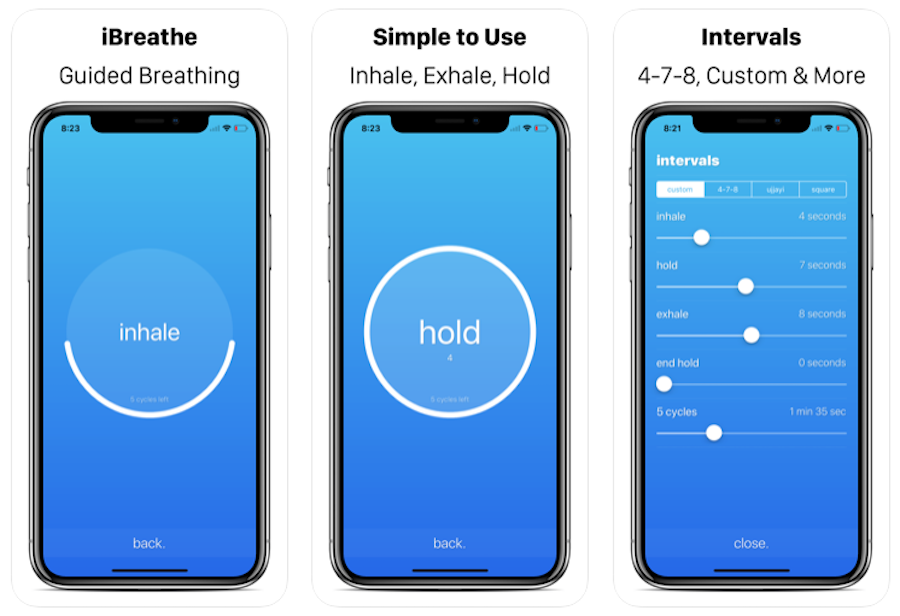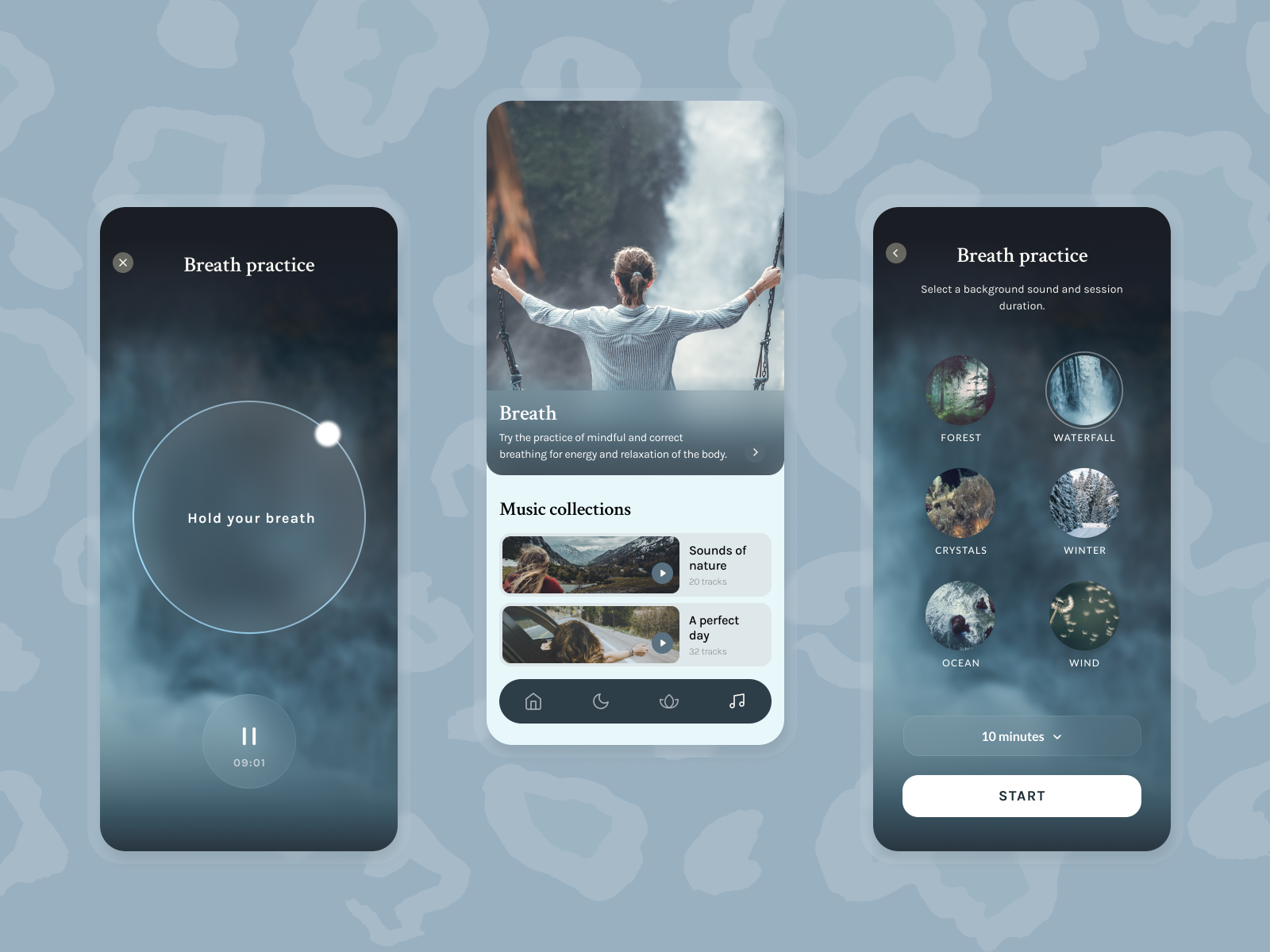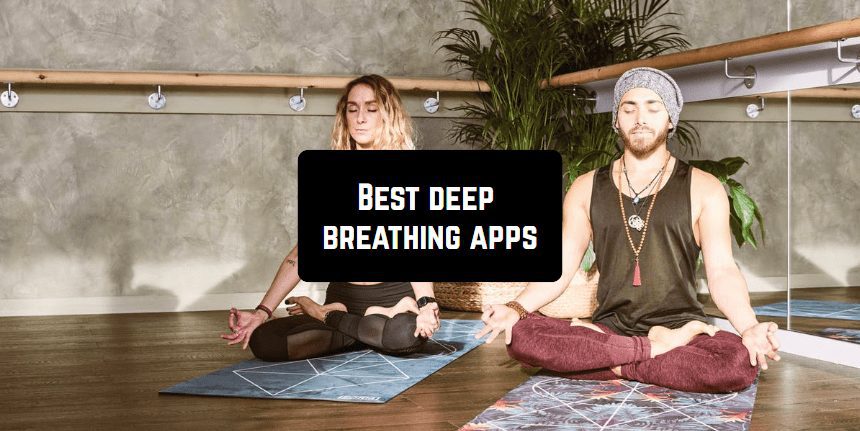Deep breathing apps are gaining popularity as a tool to promote relaxation, reduce stress, and improve overall well-being. These apps provide guided exercises, personalized programs, and tracking capabilities to help users harness the power of deep breathing for mental and physical benefits.
Research has demonstrated the effectiveness of deep breathing apps in reducing stress, improving sleep quality, and enhancing cognitive function. They are particularly beneficial for individuals with anxiety, depression, or other mental health concerns.
Introduction

Deep breathing apps are mobile applications that guide users through breathing exercises to promote relaxation, reduce stress, and improve overall well-being. These apps typically provide a range of guided breathing exercises, each with a specific purpose, such as calming the mind, promoting sleep, or increasing energy levels.
Deep breathing apps have gained significant popularity in recent years due to their accessibility, convenience, and effectiveness. Many people find that regular deep breathing exercises can help them manage stress, anxiety, and other mental health conditions.
Growing Popularity and Use of Deep Breathing Apps
The growing popularity of deep breathing apps can be attributed to several factors, including:
- Increased awareness of the benefits of deep breathing:There is a growing body of scientific evidence supporting the benefits of deep breathing for physical and mental health.
- Convenience and accessibility:Deep breathing apps make it easy for people to practice deep breathing exercises anywhere, anytime.
- Variety of options:Deep breathing apps offer a wide range of breathing exercises to choose from, so users can find the ones that best suit their needs.
- User-friendly interfaces:Deep breathing apps are typically designed with user-friendly interfaces that make them easy to use, even for beginners.
Benefits of Deep Breathing Apps
Deep breathing apps offer numerous benefits for relaxation and stress reduction. They guide users through controlled breathing exercises, promoting relaxation and reducing feelings of anxiety.
Impact on Mental Health and Well-being
Deep breathing exercises have been shown to have a positive impact on mental health and well-being. They can help:
- Reduce stress and anxiety
- Improve sleep quality
- Enhance mood and reduce depression
- Increase self-awareness and emotional regulation
By promoting relaxation and reducing stress, deep breathing apps can improve overall mental health and well-being, leading to a more balanced and fulfilling life.
Types of Deep Breathing Apps
Deep breathing apps come in various categories, each catering to different needs and preferences. These categories include guided meditation, mindfulness, and biofeedback apps.
Guided meditation apps provide step-by-step instructions and visualizations to help users relax and focus on their breath. Popular examples include Calm, Headspace, and Insight Timer.
Mindfulness Apps
Mindfulness apps focus on training users to be present and aware of their current experiences, including their breath. Some popular mindfulness apps include The Mindfulness App, Waking Up, and 10% Happier.
Biofeedback Apps
Biofeedback apps use sensors to track physiological responses, such as heart rate and breathing patterns. They provide real-time feedback to help users regulate their breath and manage stress. Some examples include Spire, Resperate, and HeartMath.
Features of Deep Breathing Apps

Deep breathing apps offer various features that enhance the user experience and effectiveness of the apps. These features include guided exercises, personalized programs, and tracking capabilities.
Guided exercises provide step-by-step instructions on how to perform different breathing techniques. This is helpful for beginners who may not be familiar with deep breathing exercises. Personalized programs allow users to create customized breathing routines based on their individual needs and goals.
Tracking capabilities allow users to monitor their progress and identify areas where they need to improve.
Guided Exercises
- Provide step-by-step instructions on breathing techniques
- Helpful for beginners
- Can include audio or visual cues
Personalized Programs
- Allow users to create customized breathing routines
- Based on individual needs and goals
- Can include different breathing exercises and durations
Tracking Capabilities
- Allow users to monitor their progress
- Can track breathing rate, duration, and other metrics
- Helpful for identifying areas where users need to improve
Effectiveness and Evidence
Numerous research studies and clinical trials have demonstrated the effectiveness of deep breathing apps in reducing stress and improving overall well-being.
A 2017 study published in the journal Psychosomatic Medicinefound that a deep breathing app significantly reduced stress levels in participants compared to a control group.
Another study, published in the journal JAMA Internal Medicinein 2019, found that a deep breathing app was effective in reducing anxiety and improving sleep quality in people with insomnia.
Case Studies
In a case study conducted by the University of California, San Francisco, a deep breathing app was found to be effective in reducing stress and improving mood in healthcare professionals during the COVID-19 pandemic.
Another case study, published in the journal Complementary Therapies in Medicine, found that a deep breathing app helped reduce stress and improve well-being in cancer patients undergoing chemotherapy.
Target Audience
Deep breathing apps are primarily designed for individuals experiencing stress, anxiety, or other mental health concerns. These apps offer guided breathing exercises tailored to specific needs, making them suitable for a wide range of users.
The target audience for deep breathing apps can be further categorized into specific demographics, such as:
Individuals with Stress and Anxiety
Deep breathing apps are particularly beneficial for individuals experiencing stress and anxiety. Guided breathing exercises can help calm the mind, reduce stress levels, and promote relaxation.
Individuals with Sleep Problems
Deep breathing exercises can aid in improving sleep quality. By reducing stress and promoting relaxation, deep breathing apps can help individuals fall asleep more easily and improve overall sleep duration and quality.
Individuals with Chronic Pain
Deep breathing exercises have been shown to alleviate chronic pain symptoms. By reducing stress and promoting relaxation, deep breathing can help manage pain levels and improve overall well-being.
Individuals with PTSD
Deep breathing apps can provide support for individuals with PTSD. Guided breathing exercises can help regulate emotions, reduce anxiety, and improve coping mechanisms.
Individuals with ADHD, Deep breathing apps
Deep breathing exercises can help improve focus and concentration in individuals with ADHD. By calming the mind and reducing stress, deep breathing can enhance cognitive function and attention span.
Design Considerations

User-friendly design and intuitive navigation are crucial for deep breathing apps. Users should be able to easily find the features they need and understand how to use them without frustration.
Best practices for creating visually appealing and engaging interfaces include using clear and concise language, avoiding clutter, and incorporating visually appealing elements such as images, videos, and animations.
Visual Appeal and Engagement
- Use high-quality images and videos that are relevant to the app’s purpose.
- Incorporate animations to make the app more interactive and engaging.
- Use color schemes that are visually appealing and consistent with the app’s branding.
- Ensure that the app’s layout is easy to navigate and that all buttons and menus are clearly labeled.
Future Trends and Innovations
Deep breathing apps are poised to undergo significant advancements in the coming years. Innovations in technology and user experience will drive the development of more personalized, effective, and engaging apps.One emerging trend is the integration of artificial intelligence (AI) and machine learning (ML).
AI-powered apps can tailor personalized breathing exercises based on an individual’s physiological data, such as heart rate variability and respiration rate. ML algorithms can analyze user patterns and provide feedback, helping individuals optimize their breathing techniques over time.
Integration of Wearable Technology
Wearable devices, such as smartwatches and fitness trackers, are becoming increasingly sophisticated and integrated with deep breathing apps. These devices can track breathing patterns, heart rate, and other physiological data, providing valuable insights into the user’s overall health and well-being.
The integration of wearable technology allows for seamless monitoring and personalized feedback, enhancing the user experience and effectiveness of deep breathing apps.
Virtual and Augmented Reality
Virtual reality (VR) and augmented reality (AR) are gaining traction in the healthcare industry, and their potential in deep breathing apps is significant. VR apps can create immersive environments that guide users through breathing exercises, providing a more engaging and interactive experience.
AR apps can overlay breathing visualizations onto the real world, helping users visualize their breathing patterns and improve their technique.
Gamification and Social Integration
Gamification and social integration are becoming increasingly popular in deep breathing apps. Gamification elements, such as rewards, challenges, and progress tracking, can motivate users to engage with the app and adhere to their breathing exercises. Social integration allows users to connect with others, share their experiences, and receive support, fostering a sense of community and accountability.
Wrap-Up
As the demand for mental health support continues to grow, deep breathing apps offer a convenient and accessible way to manage stress, improve well-being, and enhance overall quality of life. With ongoing advancements in technology and user experience, these apps are poised to play an increasingly significant role in promoting mental health and well-being.
Helpful Answers
Are deep breathing apps effective?
Yes, research studies have shown that deep breathing apps can be effective in reducing stress, improving sleep, and enhancing cognitive function.
Who can benefit from using deep breathing apps?
Deep breathing apps can benefit individuals with stress, anxiety, depression, or other mental health concerns, as well as those looking to improve their overall well-being.
How do deep breathing apps work?
Deep breathing apps typically provide guided exercises that teach users how to control their breathing patterns. These exercises help to slow the heart rate, reduce stress hormones, and promote relaxation.
